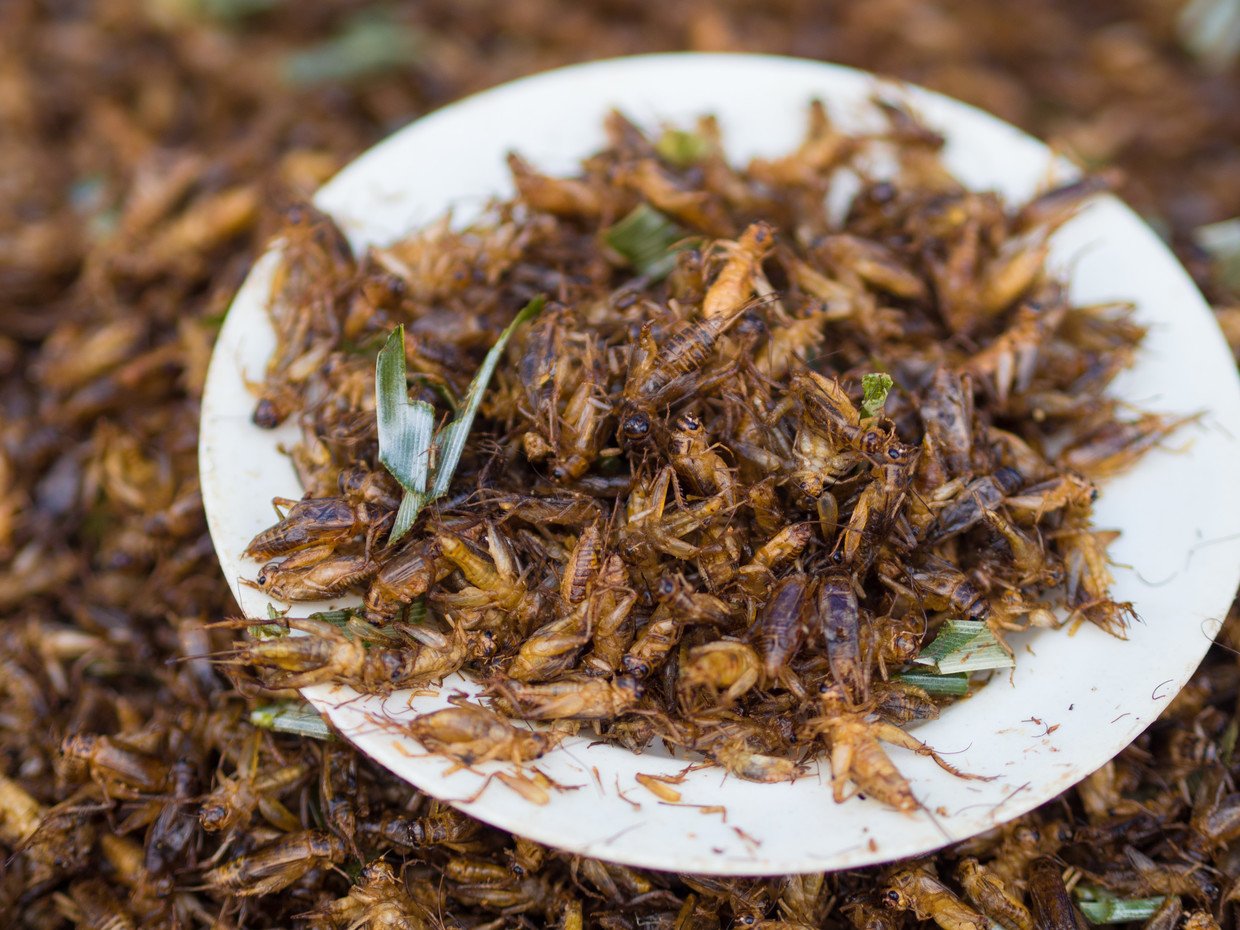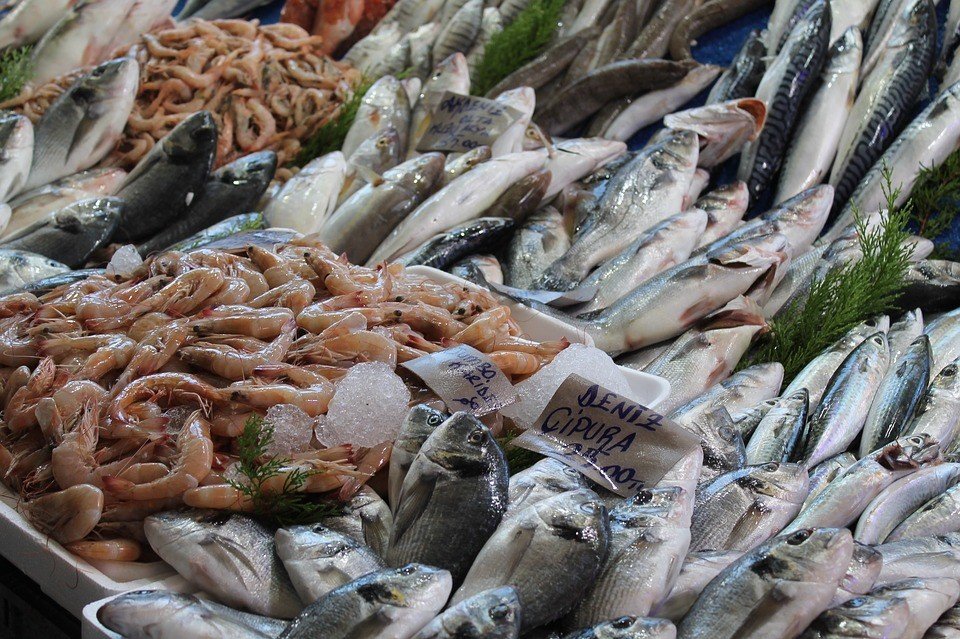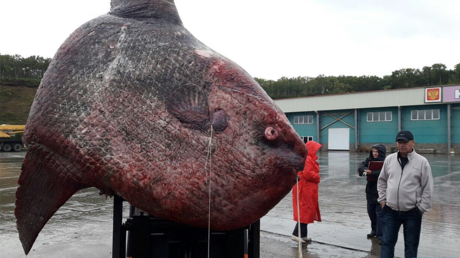Jellyfish, insects & 3D-printed meat: Here’s what experts think you’ll be eating in the future

A new report gives a fascinating insight into the future of food five, 30 and 150 years from now as the world adapts to technological advancements and a changing environment. Just don’t read it over lunch.
The 34-page report, commissioned by British supermarket Sainsbury’s, paints a picture of grocery shopping in 2025, 2050 and 2196 and aims to show the potential of food for the next 150 years.
It envisions mainstream dinners consisting of jellyfish and insects with a glass of algae milk, or perhaps some lab-grown meat and, eventually, maybe even a patch or intravenous drip that gives you all the nutrients you need. Sounds tasty.

READ MORE: Hunger games: Ukrainians spend half of their income on food, highest in Europe
Food pharmacy
Food as medicine isn’t exactly a modern thought, however the report speculates that the importance of diet on health, and foods with healing properties will come to the forefront in the next five years.
Bio-fortified foods like so-called ‘Super Mushrooms’ and salmon who have been fed a “bespoke diet” will offer customers specifically formulated extra nutrients. Specific diets for the elderly to prevent dementia and loss of brain function will be the norm by 2025, for example.
Also on rt.com 113 million worldwide living in food insecurity, conflict leading cause – reportPlanet-friendly food
The report notes that the future of food will see a huge increase in vegan, vegetarian and flexitarian (part-time vegetarian) eaters, as well as customers who want to purchase ‘planet-friendly food.’
It claims a quarter of all British people will be vegetarian by 2025 (up from one in eight today). The report says that food is the easiest way for people to reduce their global footprint, so a more plant-based diet is inevitable as the modern world moves away from meat consumption.
To supplement the nutritional gap and plate space the report says mushroom-based products, algae milk, seaweed caviar and protein-rich insects will be just some of the plant-based substitutes that will be in our fridge

It also foresees digital advancements like apps to calculate your daily environmental footprint and the introduction of carbon footprint numbers on menus – much like calories are today.
Lab-grown aisle
The supermarket also expects to introduce a “lab-grown” aisle, where customers can pick up cultured-meats and kits to grow meat at home. “Meat, as we know it today, could instead start to become a luxury product,” the report notes.
The experts say that the need for printed meat is inevitable thanks to a growing population that’s expected to reach 9 billion by 2050. The average European eats 80kg of meat per year, while North Americans and Australians eat over 110kg per year.
Also on rt.com ‘Climate-smart eating’? Swedish professor calls for ‘vegetarian pets,’ gets blasted onlineBy 2050 people will be 3D-printing their meat in the supermarket. Customers can watch their meat be created through the plexi glass of the in-store ‘artisan’ factory, which will be entirely run by robots – the only humans will be those walking between the small conveyor belts for quality control.
READ MORE: UK researchers link consumption of junk memes to teen obesity & other ‘unhealthy’ habits
Expanding the fish counter
As with everything on the planet these days, the fast-growing population is threatening the livelihood of ecosystems around the world. Marine life is no different and soon fish eaters may have to get creative.

Sainsbury’s says the shift toward ‘cultured meat’ will force even more toward the ocean for more authentic protein. The threat of sustainability to our oceans will soon force fish counters to embrace more “invasive species” like jellyfish, seaweed, porgy/bream, dogfish, lionfish and barramundi.
The future of food
By 2169, 150 years from now, it’s likely that we’ll be consuming our key nutrients through implants while nutrition patches and drips could replace our day-to-day intake.
Robotic farmers will be resuscitating the desert, attempting to rebalance the earth and reverse climate change, the report predicts. Wearable tech will advance to microchip implants that monitor our well-being and, through artificial intelligence, work out exactly what nutrients we need at each moment.
”The connected world of 2169 could see our AI personal nutrition advisors shop, prepare and tailor meals to optimise our health, ensuring that we only use exactly what we need, with food waste a thing of the past,” the report reads.
Enjoy that steak while you still can.
Think your friends would be interested? Share this story!














